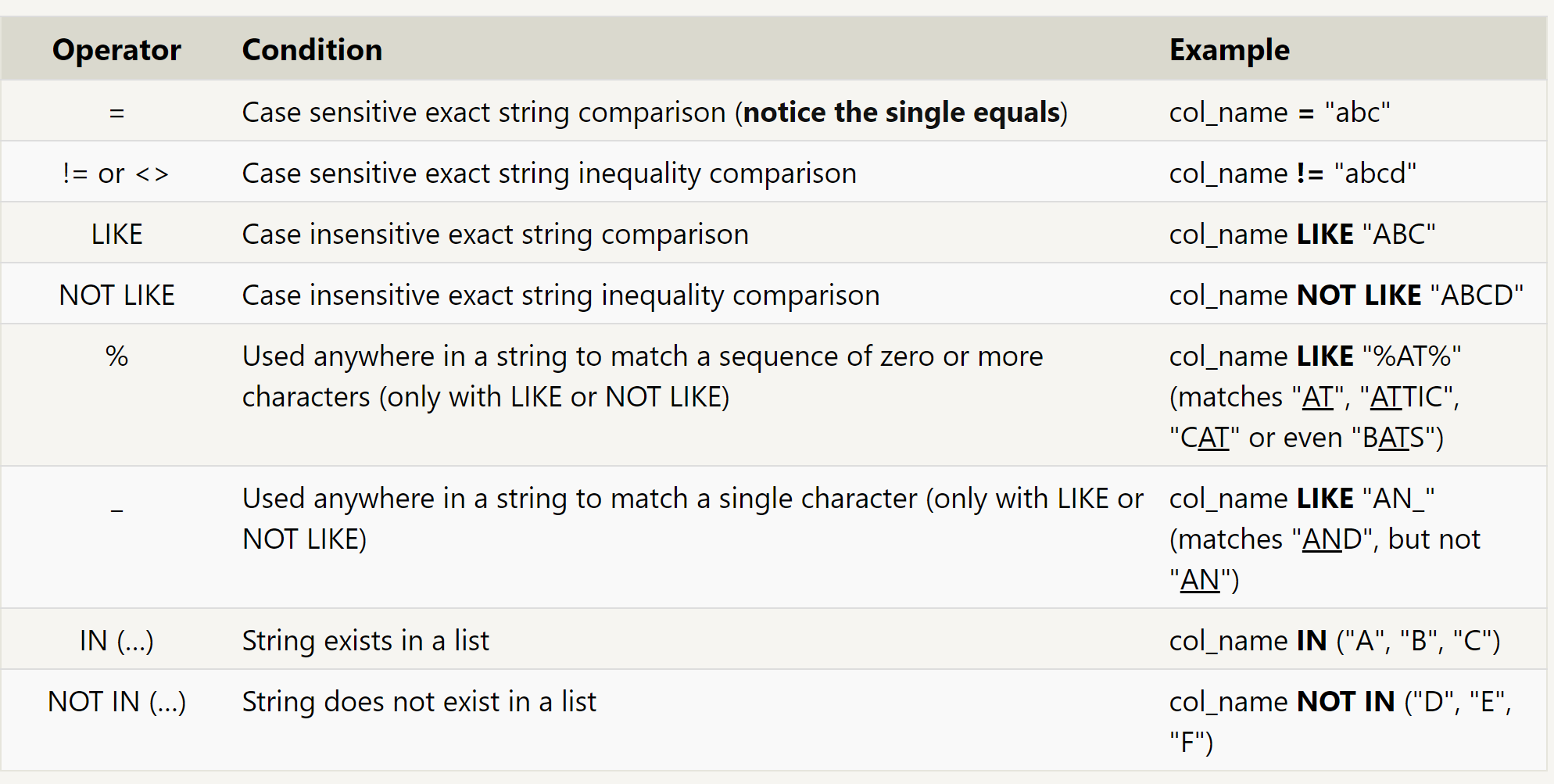SQL
SQL, or Structured Query Language, is a language designed to allow both technical and non-technical users query, manipulate, and transform data from a relational database
SELECT Statements retrieve data from a database
SELECT column, another_column, …
FROM mytable;
-- The result of this query will be a two-dimensional set of rows and columns, effectively a copy of the table, but only with the columns that we requested.
Select query for all columns
SELECT *
FROM mytable;

Select query with constraints
SELECT column, another_column, …
FROM mytable
WHERE condition
AND/OR another_condition
AND/OR …;
WHERE- clause is applied to each row of data by checking specific column values to determine whether it should be included in the results or not.
SELECT title, year FROM movies
WHERE year <= 2003;
-- different ways to use WHERE

DISTINCT- way to discard rows that have a duplicate column value
Select query with unique results
SELECT DISTINCT column, another_column, …
FROM mytable
WHERE condition(s);
ORDER BY- sort your results by a given column in ascending or descending
Select query with ordered results
SELECT column, another_column, …
FROM mytable
WHERE condition(s)
ORDER BY column ASC/DESC;
Schema- what describes the structure of each table, and the datatypes that each column of the table can contain.
INSERT- declares which table to write into, the columns of data that we are filling, and one or more rows of data to insert
INSERT INTO mytable
VALUES (value_or_expr, another_value_or_expr, …),
(value_or_expr_2, another_value_or_expr_2, …),
…;
UPDATE- common task is to update existing data, he data you are updating has to match the data type of the columns in the table schema.
Update statement with values
UPDATE mytable
SET column = value_or_expr,
other_column = another_value_or_expr,
…
WHERE condition;
DELETE- delete data from a table in the database
Delete statement with condition
DELETE FROM mytable
WHERE condition;
CREATE TABLE- Create a new database table
Create table statement w/ optional table constraint and default value
CREATE TABLE IF NOT EXISTS mytable (
column DataType TableConstraint DEFAULT default_value,
another_column DataType TableConstraint DEFAULT default_value,
…
);